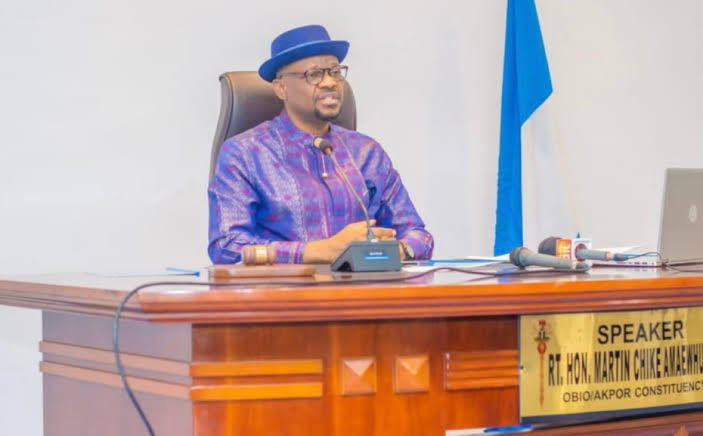The Rivers State House of Assembly reconvened on September 18, 2024, marking the end of a tumultuous six-month period defined by a state of emergency imposed by President Bola Tinubu. This resumption of plenary, held in a temporary chamber within the legislative quarters in Port Harcourt, signaled a return to normalcy for the state’s legislative arm, which had faced significant disruption due to political tensions and the subsequent destruction of their original assembly complex. The backdrop of this resumption was a complex interplay of political forces, involving a power struggle within the ruling party, accusations of constitutional breaches, and ultimately, a reconciliation that paved the way for the reinstatement of the elected officials.
The state of emergency, declared by President Tinubu on March 18, 2024, stemmed from a protracted political standoff between Governor Siminalayi Fubara and a faction of House of Assembly members aligned with the influential Minister of the Federal Capital Territory, Nyesom Wike. This internal conflict within the ruling party escalated to the point where the President deemed it necessary to intervene, suspending Governor Fubara, his deputy, Ngozi Odu, and the affected lawmakers. The appointment of Vice Admiral Ibok-Ete Ibas (retd.) as sole administrator further underscored the severity of the situation, effectively placing the state under direct presidential oversight. This drastic measure generated considerable controversy, with legal scholars and political analysts questioning its constitutionality and raising concerns about potential precedents.
Despite the initial turmoil surrounding the imposition of the state of emergency, behind-the-scenes efforts toward reconciliation were underway. Key figures involved in the political standoff, including Governor Fubara and Minister Wike, engaged in private discussions aimed at resolving their differences. Notably, Governor Fubara made two discreet visits to President Tinubu in Lagos, signaling a willingness to address the underlying issues that had led to the crisis. These meetings, coupled with Fubara’s subsequent interactions with Wike at various public functions, suggested a thawing of relations and a growing momentum towards a resolution. The efforts culminated in a public statement by Minister Wike confirming the reconciliation, effectively paving the way for the lifting of the state of emergency.
President Tinubu’s decision to end the emergency rule on September 17, 2024, and reinstate Governor Fubara, his deputy, and the lawmakers, was met with a mix of relief and cautious optimism. The resumption of plenary on September 18 marked a symbolic return to democratic processes in Rivers State. However, the challenges facing the state’s government and legislature remained significant. The destruction of the original assembly complex, which was torched and subsequently demolished during the period of political turmoil, left the lawmakers with a temporary chamber within the legislative quarters. The incomplete reconstruction of the assembly complex by the outgoing sole administrator underscored the disruption caused by the crisis and the need for a renewed focus on rebuilding and consolidating the state’s institutions.
Furthermore, the political landscape of Rivers State remained complex even after the resolution of the immediate crisis. The underlying tensions that led to the standoff, including power dynamics within the ruling party and competing interests within the state government, still needed to be fully addressed. The resumption of plenary provided an opportunity for the lawmakers to demonstrate their commitment to stability and good governance, by addressing the pressing needs of their constituents and working collaboratively to rebuild trust in the state’s institutions. The focus now shifted to ensuring that the lessons learned from this tumultuous period would inform future political conduct and contribute to a more stable and prosperous future for Rivers State.
The six-month state of emergency in Rivers State served as a stark reminder of the fragility of democratic institutions and the importance of upholding constitutional principles. The events that unfolded highlighted the potential for political disputes to escalate into crises, with significant consequences for governance and stability. The subsequent reconciliation and resumption of plenary signaled a commitment to restoring normalcy and rebuilding trust, but the long-term success of this endeavor would depend on the continued commitment of all stakeholders to dialogue, compromise, and adherence to the rule of law. The experience of Rivers State offered valuable insights into the challenges and opportunities facing democratic governance in Nigeria, underscoring the need for continuous efforts to strengthen institutions, promote inclusivity, and foster a culture of peaceful conflict resolution.














